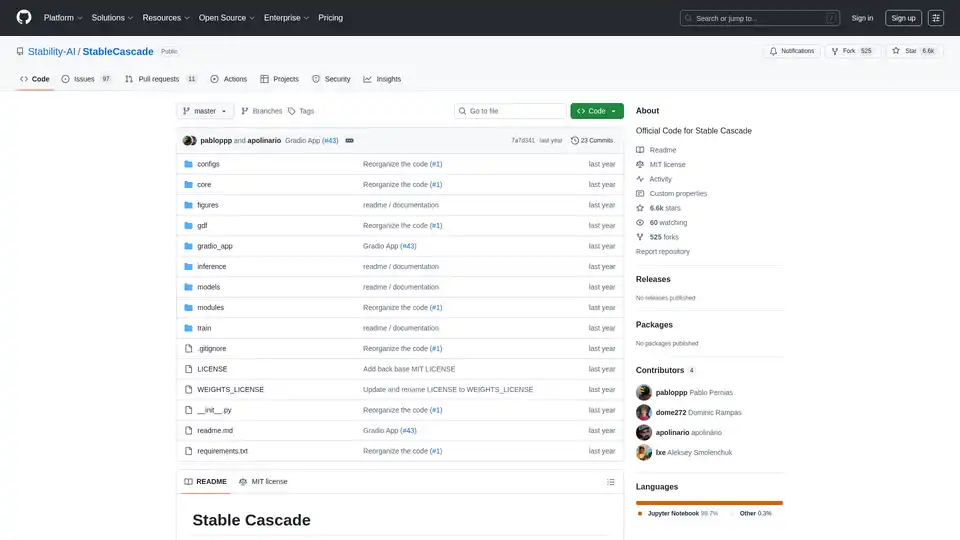Stable Cascade
Overview of Stable Cascade
Stable Cascade: An Efficient Architecture for Text-to-Image Diffusion Models
Stable Cascade is an innovative text-to-image model developed by Stability AI, leveraging the Würstchen architecture to achieve high efficiency and impressive visual results. This open-source codebase provides training and inference scripts, along with various models for diverse applications.
What is Stable Cascade?
Stable Cascade distinguishes itself through its highly compressed latent space, enabling faster inference and cheaper training compared to models like Stable Diffusion. By employing a compression factor of 42, Stable Cascade encodes a 1024x1024 image into a compact 24x24 representation while maintaining crisp reconstructions. This efficiency makes it well-suited for scenarios where computational resources are limited.
How Does Stable Cascade Work?
Stable Cascade comprises three key models: Stage A, Stage B, and Stage C. Stages A and B function as autoencoders, compressing images to a smaller latent space. Stage C, a diffusion model, generates 24x24 latent images from a given text prompt. This cascaded approach allows for efficient and high-quality image generation.
- Stage A: VAE (Variational Autoencoder) for initial compression.
- Stage B: Diffusion model for further compression.
- Stage C: Text-conditional diffusion model for generating latent images.
Key Features and Benefits
- Efficiency: Smaller latent space leads to faster inference and reduced training costs.
- High Compression: Achieves a compression factor of 42, encoding 1024x1024 images to 24x24.
- Extensibility: Supports finetuning, LoRA, ControlNet, and IP-Adapter.
- Impressive Results: Delivers excellent prompt alignment and aesthetic quality.
Model Overview
The release includes multiple checkpoints for each stage:
- Stage C: 1 billion and 3.6 billion parameter versions (3.6 billion recommended).
- Stage B: 700 million and 1.5 billion parameter versions (1.5 billion recommended for finer details).
- Stage A: Fixed 20 million parameter version.
Getting Started with Stable Cascade
Inference:
Use the provided notebooks in the inference section for various use cases:
- Text-to-Image: Basic functionality for text-to-image generation, image variation, and image-to-image tasks.
- ControlNet: Integration with ControlNets for advanced control over image generation (Inpainting, Face Identity, Canny, Super Resolution).
- LoRA: Implementation for training and using LoRAs to finetune Stage C and add new tokens.
- Image Reconstruction: Utilize Stage A & B as (Diffusion) Autoencoders, benefiting from a much higher compression, allowing you to train and run models faster.
Training:
Code and explanations for training Stable Cascade from scratch, finetuning, and training ControlNets and LoRAs are available in the training folder.
Use Cases
- Text-to-Image Generation: Create images from textual descriptions.
- Image Variation: Generate variations of existing images.
- Image-to-Image Translation: Modify images based on text prompts.
- ControlNet Integration: Control image generation using various ControlNets.
- Customization: Finetune the model with LoRAs and custom datasets.
- Efficient AI Research: Use the highly compressed latent space to train your own models faster.
Who is Stable Cascade For?
Stable Cascade is suitable for:
- AI researchers seeking efficient text-to-image models.
- Developers building applications that require fast image generation.
- Artists and designers exploring AI-assisted creativity.
- Anyone interested in the latest advancements in latent diffusion models.
Why Choose Stable Cascade?
- Efficiency: Faster inference and cheaper training due to the highly compressed latent space.
- Extensibility: Supports various extensions and customization options.
- State-of-the-Art Performance: Delivers excellent visual quality and prompt alignment.
- Open Source: Freely available and customizable codebase.
Example Use Cases with Images
- Text-to-Image: Generate a cinematic photo of an anthropomorphic penguin in a cafe reading a book.
- Image Variation: Create variations of a given image without a prompt.
- Image-to-Image: Noise an image and regenerate it based on a text prompt.
Technical Details
Stable Cascade achieves a spatial compression factor of 1024 / 24 = 42.67, enabling efficient encoding and decoding of images with minimal loss of detail.
Community and Contributions
The codebase is under active development, and contributions are welcome. Share your ideas, feedback, and updates to help improve Stable Cascade.
License
The code is licensed under the MIT License, while the model weights are under the STABILITY AI NON-COMMERCIAL RESEARCH COMMUNITY LICENSE.
Get Started Today
Explore the official Stable Cascade codebase and unleash your creativity with efficient text-to-image generation!
Best Alternative Tools to "Stable Cascade"
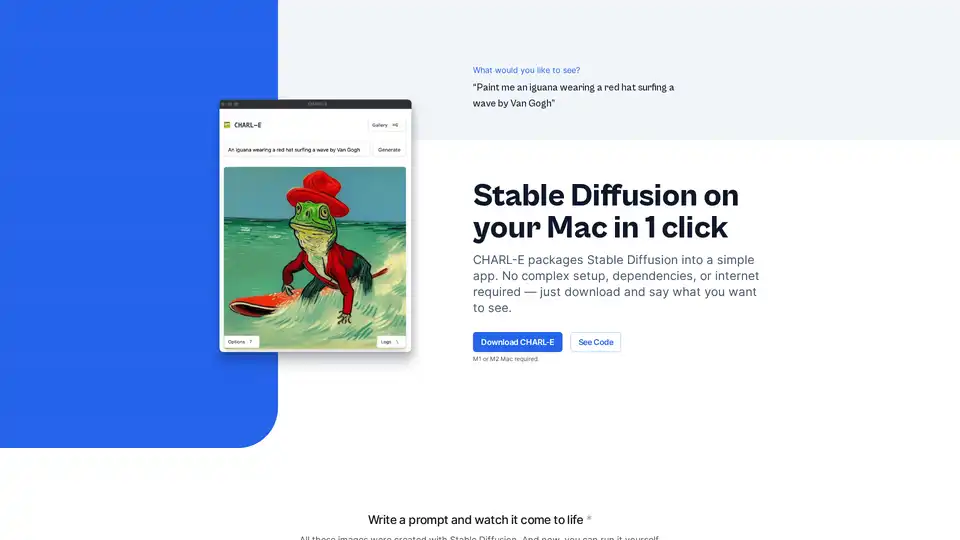
CHARL-E is a one-click Mac app that packages Stable Diffusion, letting you create AI art locally. No setup, dependencies, or internet needed. Just write a prompt and watch your imagination come to life!
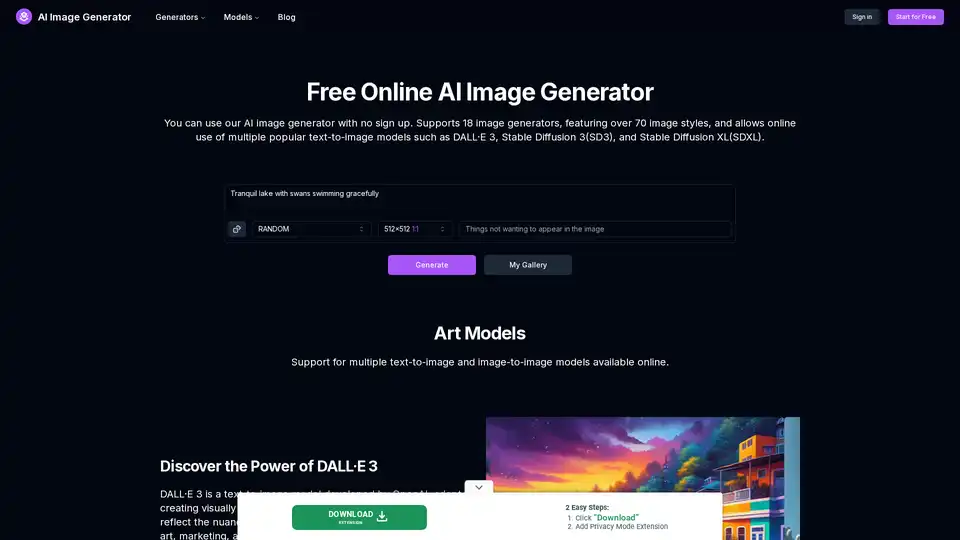
AI Image Generator is a free online tool that uses AI to turn text into images. It supports various models like DALL-E 3 and Stable Diffusion, allowing you to create AI art, anime, tattoos, and more without signing up.
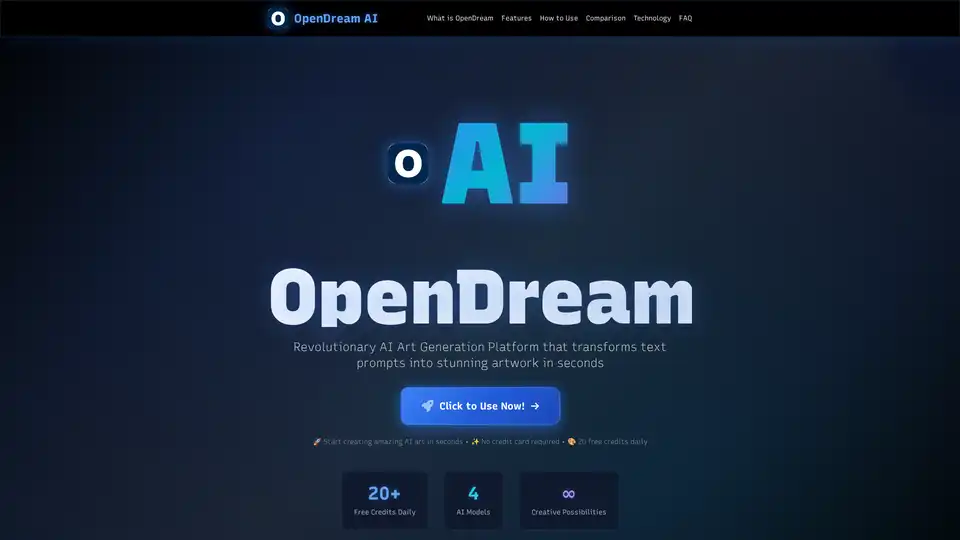
OpenDream AI transforms text into stunning AI art in seconds. Generate high-quality images with multiple AI models. Free tier available. Start creating now!

Flux Pro AI: An All-in-One AI platform developed by Black Forest Labs, offering text-to-image, image-to-image, video generation, and AI design tools. Explore its fast, high-quality AI image generation with various models.
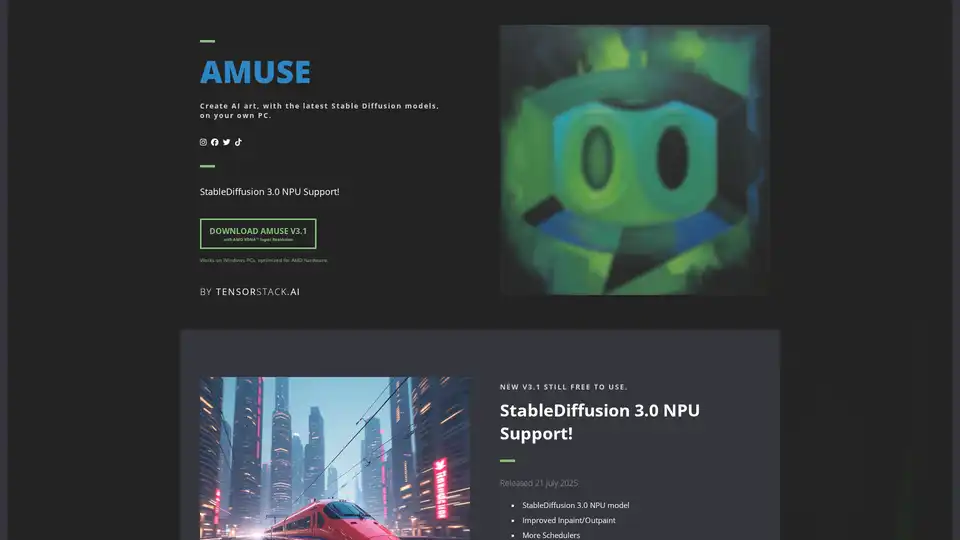
Amuse is a free AI art generator using Stable Diffusion models optimized for AMD hardware, enabling image and video generation on personal PCs without internet connection.
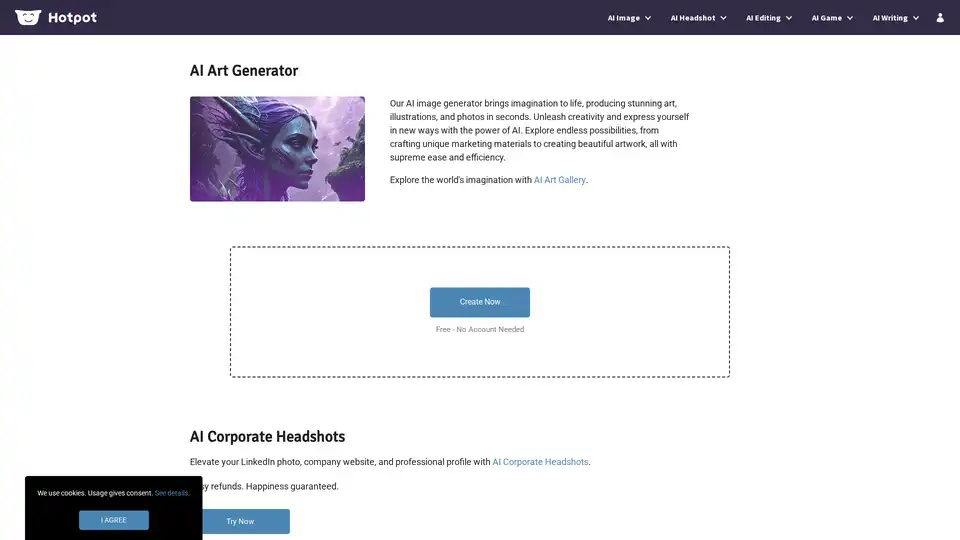
Hotpot AI Art Generator is a free, no-login tool leveraging Stable Diffusion for stunning text-to-image creations. Millions use it to produce art, illustrations, and photos effortlessly, enhancing creativity in marketing and personal projects.
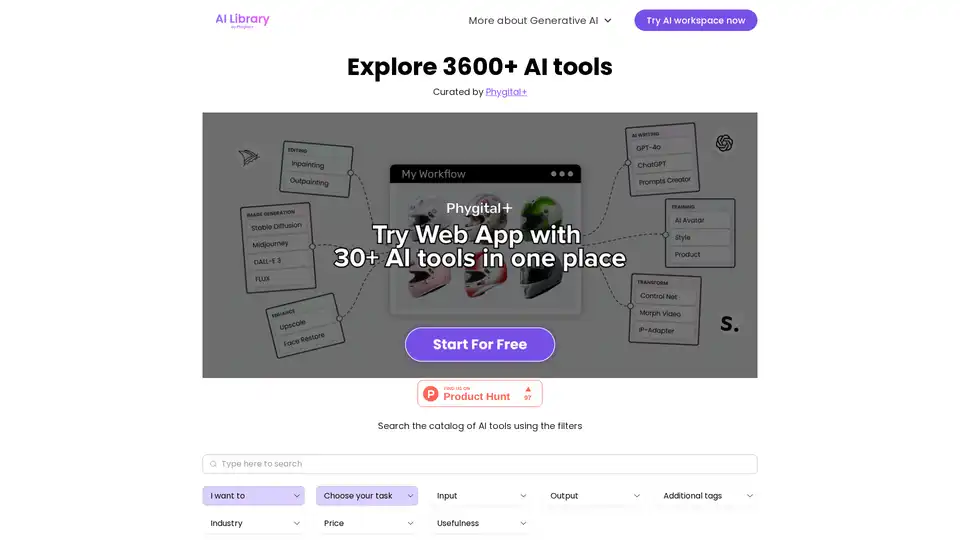
Explore AI Library, the comprehensive catalog of over 2150 neural networks and AI tools for generative content creation. Discover top AI art models, tools for text-to-image, video generation, and more to boost your creative projects.

TrainEngine.ai allows users to train image models like Stable Diffusion XL, chain them together, and generate unlimited AI art assets. Ideal for creating custom AI-generated images from trending themes.
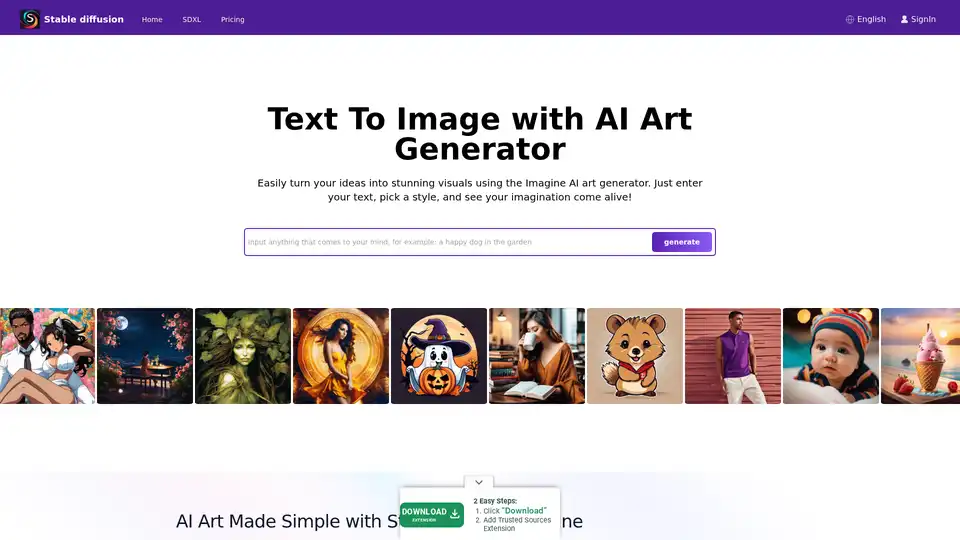
Explore Stable Diffusion, an open-source AI image generator for creating realistic images from text prompts. Access via Stablediffusionai.ai or local install for art, design, and creative projects with high customization.
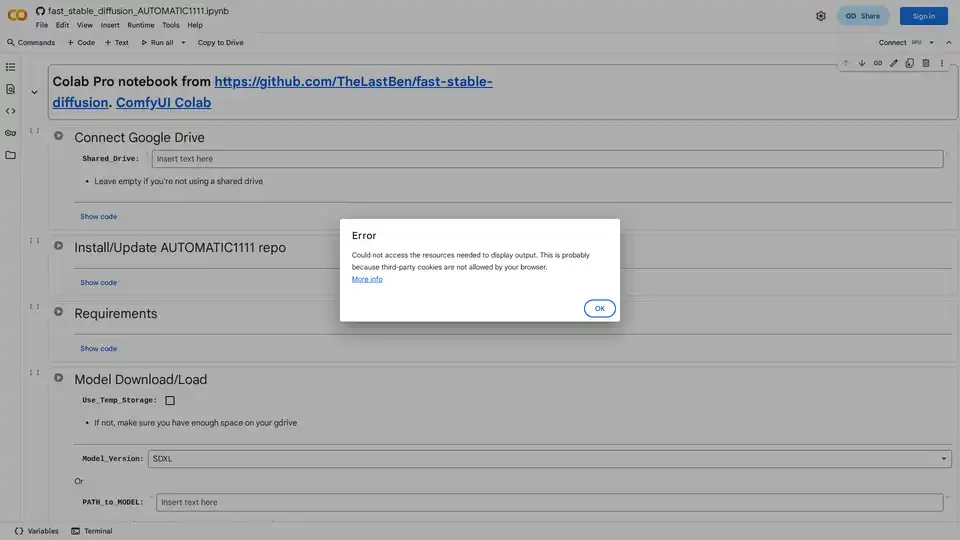
Discover how to effortlessly run Stable Diffusion using AUTOMATIC1111's web UI on Google Colab. Install models, LoRAs, and ControlNet for fast AI image generation without local hardware.
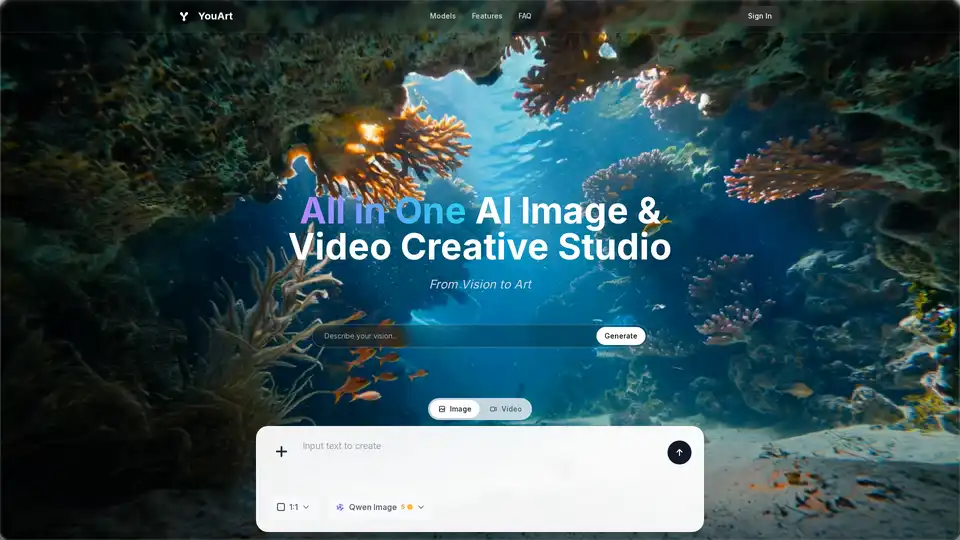
YouArt is an AI creative studio transforming text prompts into stunning AI-generated images and videos. Access 10+ advanced AI models for endless creative possibilities.

Chat & Ask AI is an advanced AI chatbot powered by multiple LLMs, offering faster AI chat, image generation, writing tools, AI assistants, and WhatsApp integration.
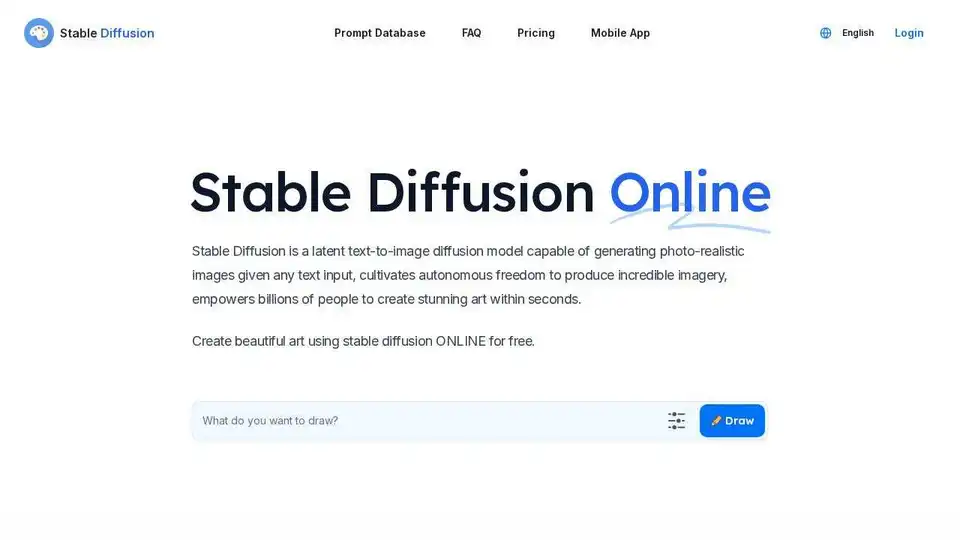
Stable Diffusion is a deep learning model that generates images from text descriptions. Use Stable Diffusion online for free.

DALL-E 3, OpenAI's AI image generator, creates realistic visuals from text prompts. Integrated with ChatGPT, it offers safety measures and creator control.
